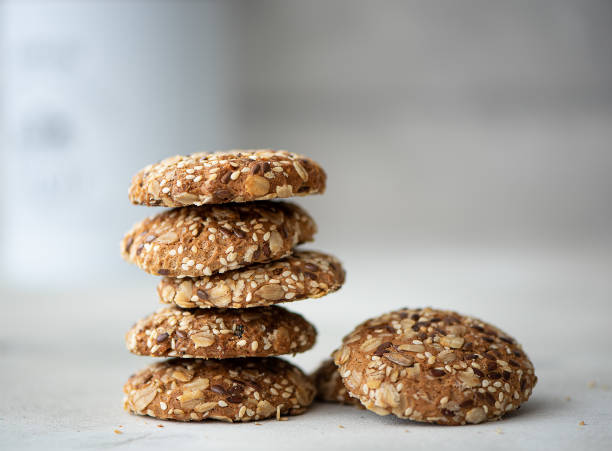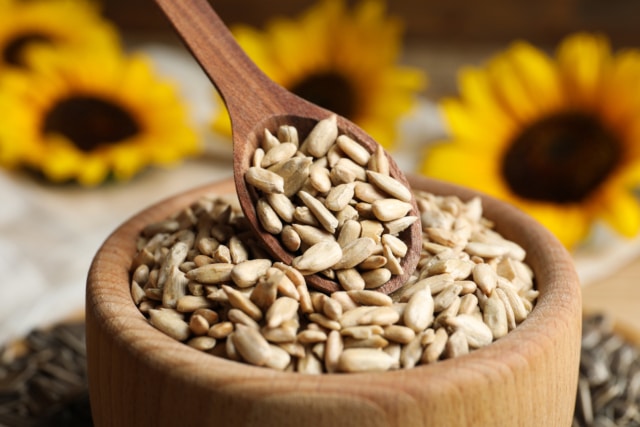“Discover the health benefits of sunflower seeds. Learn about their nutritional value, how they support overall wellness, and why they might be a great addition to your diet.”
Sunflower seeds are not only a popular snack but also a powerhouse of nutrients that offer various health benefits. From their impressive nutritional profile to their potential health advantages, sunflower seeds can be a valuable addition to your diet. In this comprehensive guide, we will explore whether sunflower seeds are good for your health, detailing their nutritional value, benefits, and more.
Nutritional Value of Sunflower Seeds
Sunflower seeds are a nutrient-dense food, packed with vitamins, minerals, and healthy fats. Here’s a breakdown of their key nutritional components:
- Vitamin E: Sunflower seeds are an excellent source of vitamin E, an antioxidant that helps protect cells from oxidative damage. A 28-gram serving of sunflower seeds provides 49% of the daily recommended intake of vitamin E.
- Healthy Fats: These seeds are rich in unsaturated fats, including omega-6 fatty acids, which contribute to heart health by reducing bad cholesterol levels.
- Protein: Sunflower seeds offer about 6 grams of protein per serving, making them a good plant-based protein source.
- Fiber: With approximately 3 grams of fiber per serving, sunflower seeds support digestive health and help maintain regular bowel movements.
- Minerals: They are high in magnesium, selenium, and copper, essential for various bodily functions, including muscle and nerve function, immune support, and bone health.
:max_bytes(150000):strip_icc()/sunflower-seeds-7934d8023d04493baf8d95512ef4021b.jpg)
Health Benefits of Sunflower Seeds
1. Heart Health: Sunflower seeds are rich in healthy fats and antioxidants, which promote heart health. The omega-6 fatty acids and vitamin E in sunflower seeds can help reduce inflammation and lower cholesterol levels, potentially reducing the risk of cardiovascular diseases.
2. Skin Health: The high vitamin E content in sunflower seeds plays a crucial role in maintaining healthy skin. Vitamin E helps protect skin cells from damage caused by free radicals, supports skin hydration, and may reduce signs of aging.
3. Digestive Health: Sunflower seeds are a good source of dietary fiber, which aids in digestion by promoting regular bowel movements and preventing constipation. Fiber also helps maintain a healthy gut microbiome.
4. Bone Health: Magnesium and copper found in sunflower seeds are essential for maintaining strong bones and preventing conditions like osteoporosis. These minerals support bone density and overall skeletal health.

5. Immune Support: Sunflower seeds contain selenium, which is known to enhance immune function and protect against infections. Selenium also has antioxidant properties that help combat oxidative stress.
6. Mood and Mental Health: The nutrients in sunflower seeds, including magnesium and tryptophan, can have a positive impact on mood and mental health. Magnesium helps regulate neurotransmitters, while tryptophan is a precursor to serotonin, a neurotransmitter associated with mood regulation.
7. Blood Sugar Control: Sunflower seeds can help stabilize blood sugar levels due to their fiber and healthy fat content. This may aid in the management of diabetes and prevent sudden spikes in blood sugar.
8. Anti-Inflammatory Effects: The antioxidants and healthy fats in sunflower seeds have anti-inflammatory properties, which can help reduce chronic inflammation in the body and lower the risk of inflammatory diseases.
9. Hair Health: Sunflower seeds are rich in essential fatty acids and vitamins that promote healthy hair growth. Vitamin E, in particular, helps improve scalp health and may prevent hair loss.

10. Weight Management: The fiber and protein content in sunflower seeds can help you feel full longer, potentially aiding in weight management by reducing overall calorie intake and preventing overeating.
11. Bone Health: Sunflower seeds are also a good source of phosphorus, which, along with magnesium and calcium, plays a critical role in maintaining bone strength and preventing bone-related issues.
Incorporating Sunflower Seeds into Your Diet
Sunflower seeds are versatile and can be easily incorporated into various dishes:
- Snacking: Enjoy them on their own or as a topping for salads and yogurt.
- Baking: Add sunflower seeds to muffins, bread, or granola for extra crunch and nutrition.
- Smoothies: Blend them into your smoothies for added protein and healthy fats.
- Salads: Toss sunflower seeds into salads for a crunchy texture and nutrient boost.
- Trail Mixes: Include them in homemade trail mixes for a nutritious snack on the go.

Conclusion
Sunflower seeds offer a range of health benefits and are packed with essential nutrients. From supporting heart health and skin wellness to promoting digestive and bone health, incorporating sunflower seeds into your diet can be a great way to enhance your overall well-being. Their versatility in recipes and snacks makes them an easy and nutritious choice for anyone looking to improve their health.
Quote: “Sunflower seeds are a simple yet powerful addition to your diet, offering numerous health benefits while providing essential nutrients.” – Nutritional Expert
